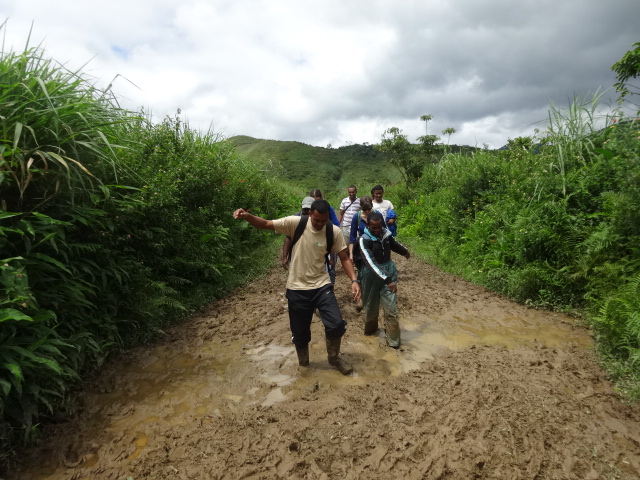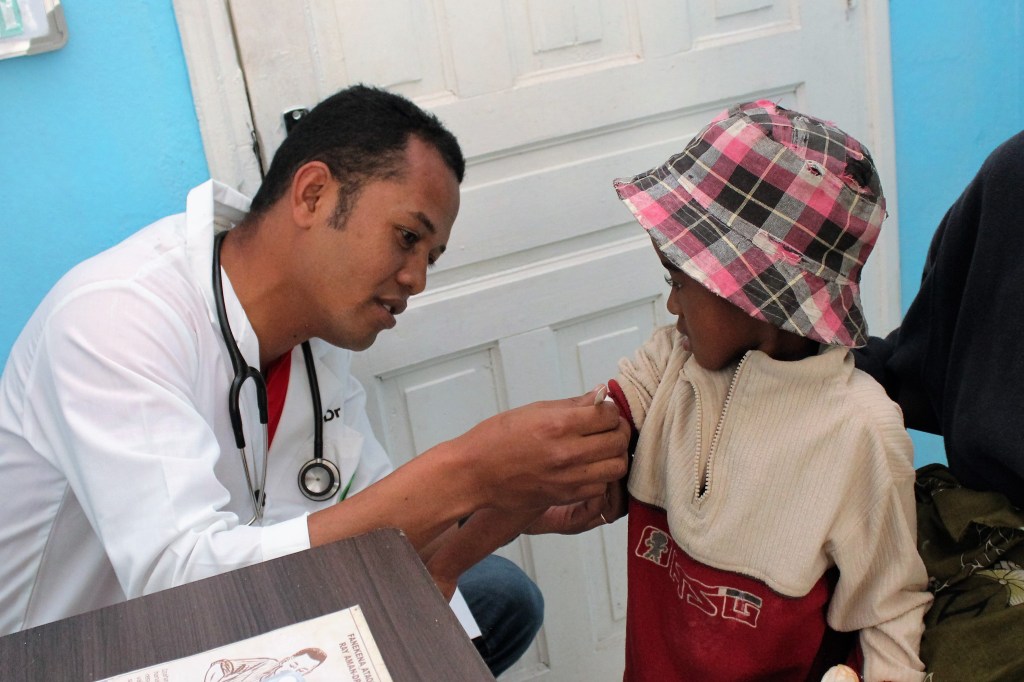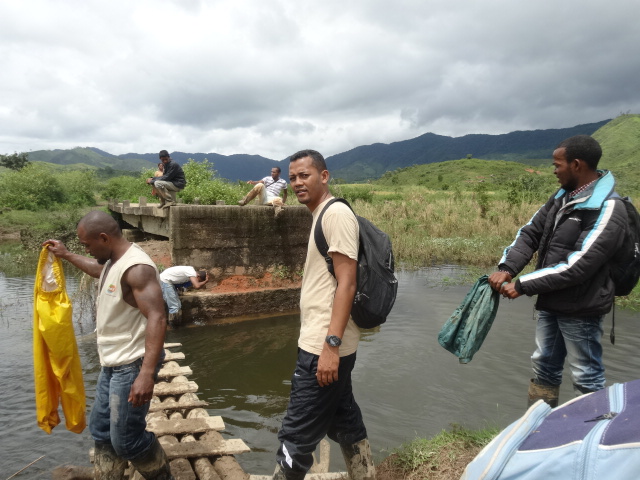23 Aug Staff Spotlight: Dr. Herinjaka Andriambolamanana
Dr. Herinjaka Andriambolamanana – better known by the community as Dr. Njaka – says that it was the youth of the organization that first attracted him to join the PIVOT team during its first year of work. That, and the idea that PIVOT was on the ground not to build a parallel healthcare system or provide a single short-term intervention, but to stay for the long haul and partner with the government to effect lasting systemic change.
After graduating from medical school in Madagascar, Dr. Njaka got his start in mobile health outreach in Ifanadiana District by leading multi-week expeditions on foot, delivering health services to the district’s most rural and remote areas. Through this, he saw first-hand what it means to live more than a 10-kilometer walk from the nearest health facility, as 70% of the district’s population does. The experience gave him time to deeply consider the structure of the health system itself – what geographic, financial, and social barriers to healthcare look like, especially for rural communities.
”The perspective and humility it takes to walk for days and sleep on the ground in order to reach every last person in need of care is what we mean when we say we’ll do ‘whatever it takes,’” says Tara Loyd, PIVOT’s Executive Director. She explains that when a patient whose family and community members have been carrying them on a homemade stretcher – possibly for several days – arrives at the hospital to access health care, we want our doctors to welcome them not only with compassion for the journey they’ve just made, but also with confidence that their loved one is in good hands.

That trust is not always easy to build, and it is least often earned by dropping expatriate physicians into a rural healthcare system without context. “It comes when brave and compassionate physicians like Dr. Njaka join an organization early on, and understand the importance of collaborating to create something that truly works for the community it serves,” says Tara.
With new initiatives cropping up at a swift pace throughout PIVOT’s infancy, Dr. Njaka established himself from the start as a colleague who is eager to problem-solve and able to remain flexible in the face of change. He enjoys both the technical and humanitarian aspects of his job, and says that every day is “an opportunity to do more for the local community while bringing new innovations to our work.”
Today, Dr. Njaka serves as PIVOT’s Manager of Vertical Programs, overseeing activities related to health issues that we address across all levels of the health system, including malnutrition, tuberculosis, and maternal health. He provides an essential physician’s perspective for the implementation of these programs from out in the community, to health centers, to the district hospital and beyond.

In speaking about Dr. Njaka, PIVOT’s National Director Dr. Ali Ouenzar explains that the jovial young doctor “represents the new generation of Malagasy health professionals who are eager to learn more about global health, and who are motivated by a desire to improve the health status of their own communities.” This reflects the tone Dr. Njaka has been essential in creating and maintaining among PIVOT’s growing staff throughout his time with the organization.
In addition to his talents as a clinician and program manager, Dr. Njaka has contributed enormously to PIVOT’s familial culture – he can often be found at the center of staff gatherings, strumming a guitar and encouraging people to sing along to tunes from around the globe.
It comes as no surprise to those who know him that Dr. Njaka says the quote that motivates his daily work is Socrates’ open-ended query, “Is there anything more precious to man than health?” From the colleagues who work alongside him daily to the patients whose lives his work has affected over the past four years, Dr. Njaka’s spirit and commitment make him an indisputable asset to the PIVOT team.

